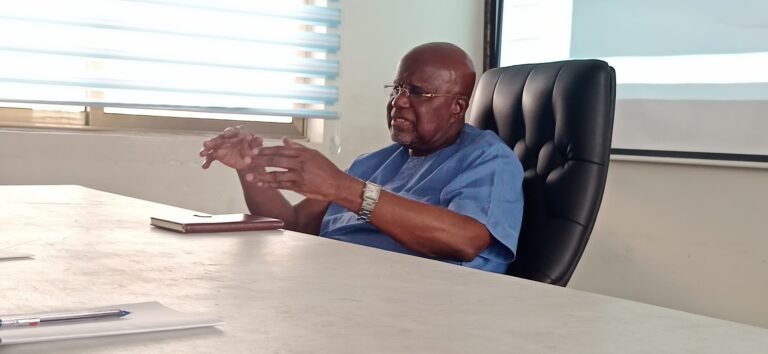
Justice Jones Victor Mawulorm Dotse
A nine-member Supreme Court review panel, presided over by Justice Jones Victor Mawulorm Dotse, yesterday dismissed an application seeking a review of its earlier ruling that the First and Second Deputy Speakers of Parliament can vote and be counted while presiding over proceedings of the House.
Diana Asonaba Dapaah, a Deputy Attorney-General, had argued that the applicant, Justice Abdulai, had failed in his application to show any exceptional circumstances resulting in a miscarriage of justice, neither did he show any real matters up for consideration by the Court.
“This application is a clear abuse of this Court, and this application ought to be dismissed,” she argued.
After hearing the submissions of the state and the applicant, who represented himself, the Supreme Court ruled that the threshold required for a review application was not met, hence the application was unmeritorious.
“Considering the threshold that this review application is supposed to meet, we are of the considered view that this application falls short. The application is thus dismissed for being unmeritorious,” the presiding judge, Justice Jones Dotse, ruled.
Other members of the review panel were Justice Nene Amegatcher, Justice Prof. Nii Ashie Kotey, Justice Mariama Owusu, Justice Lovelace Johnson, Justice Gertrude Torkornoo, Justice Clemence Honyenuga, Justice Henrietta Mensah-Bonsu and Justice Yoni Kulendi.
Ordinary bench
Justice Abdulai, a private legal practitioner, had filed an application at the Supreme Court seeking a review of the court’s judgement that a Deputy Speaker of Parliament has a voting right while presiding. He contended that there was a miscarriage of justice in the judgment, which warranted a review.
The panel that sat on the matter were Justice Victor Jones Dotse (presiding), Justice Emmanuel Yonny Kulendi, Justice Nene A. Amegatcher, Justice Nii Ashie Kotey, Justice Mariama Owusu, Justice Avril Lovelace-Johnson and Justice Clemence Jackson Honyenuga.
Considering the judgment of the ordinary bench, the Court decided that upon the true and proper interpretation of Articles 102, 104(1), 104(2), 295(2), 95, 96 and Chapter 10 of the Constitution in general, a Deputy Speaker can count himself for purposes of a quorum, and is entitled to an original vote. It added that Order 109 (3) of the Standing Orders of Parliament of the Republic of Ghana is inconsistent with the 1992 Constitution.
According to the judgment, Ghana’s position on the right of the presiding officer of Parliament to vote on a matter is in consonance with the law or practice in the Commonwealth and Anglo-American jurisdictions as the United Kingdom, United States, Canada, Australia, Kenya and South Africa.
A-G’s argument
The Attorney General had argued that a Deputy Speaker of Parliament, or any member presiding over proceedings in the House in the absence of the Speaker, is entitled to be counted for the purpose of making up the quorum of half of the MPs required by Article 104 (1) of the constitution for determination of matters in Parliament.
He said further that a Deputy Speaker or any member presiding over proceedings in the House in the absence of the Speaker is entitled to cast a vote for the purpose of taking a decision in the House in accordance with Article 104(1) of the constitution.
The AG also argued that the view espoused by plaintiff suffered from a fundamental failure to distinguish between a “Speaker qua Speaker under the constitution” and a “Member of Parliament who deputises for the Speaker” by virtue of Articles 96 and 101.
Odds against me
Meanwhile, the applicant, Justice Abdulai, who is law lecturer at the University of Professional Studies, Accra, yesterday said he knew the odds were against him when he decided to apply for a review of the judgment.
“A review application is probably one of the most difficult things to succeed at the Supreme Court, and so I knew the odds were against me. Indeed, some had predicted 1:100. I had predicted almost zero,” Abdulai told journalists after his application was dismissed by the court.
He said even though he knew the odds were against him, he “still moved forward with this because in principle, the Supreme Court, I believe, is made up of seasoned lawyers, and if you make a strong argument before them, they are amenable to reviewing their previous decisions.”
“As it turns out, they have decided, and once they have decided otherwise, I think we have to move on as a nation. What I didn’t want was a situation where posterity would question us, as to why we didn’t take this small window of opportunity that was available to us to attempt a review … So, once they have decided this way, I think posterity will judge us all in a positive light,” he added.





